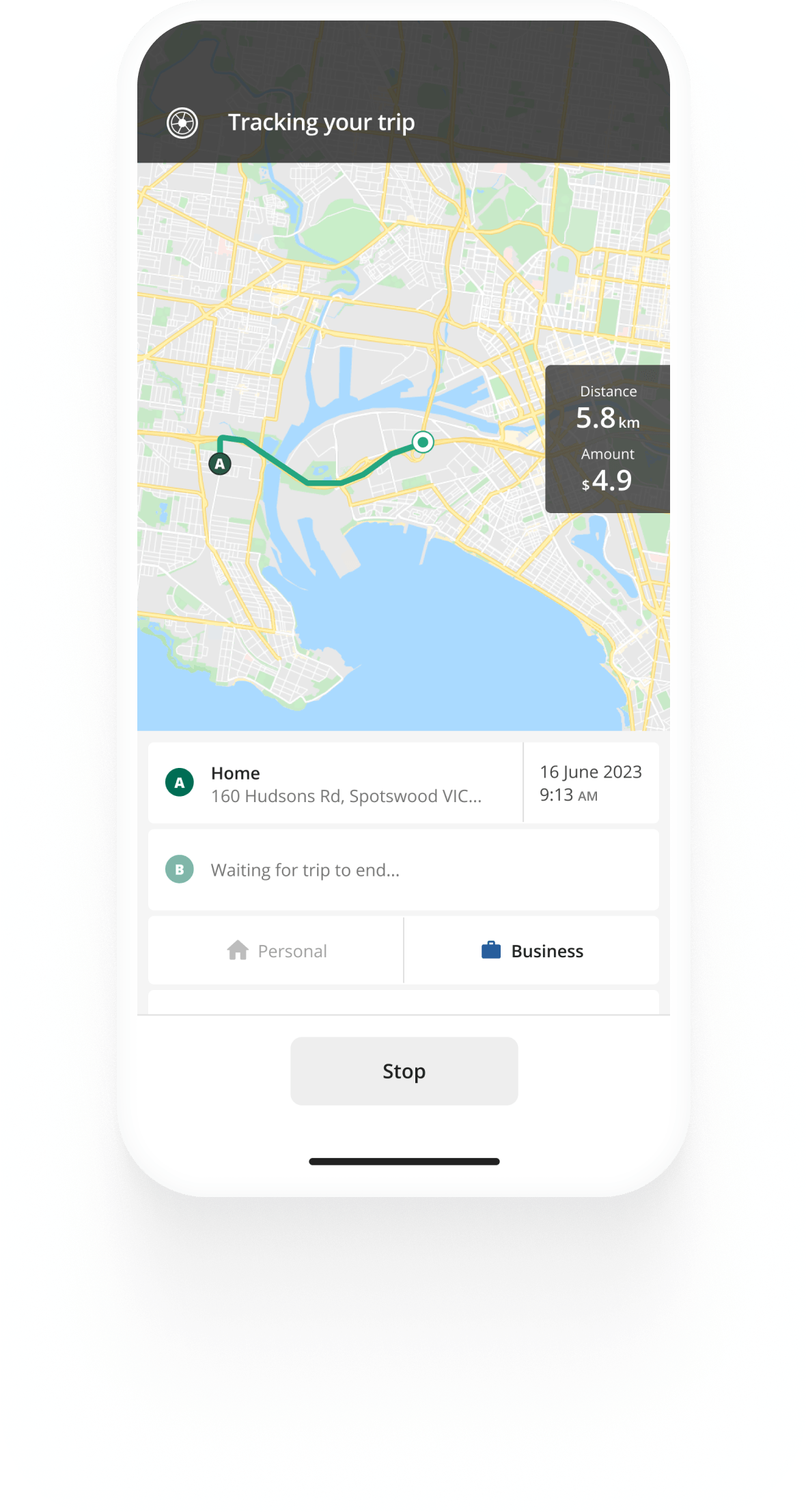Track mileage automatically
Get started.svg)
The Logbook vs The Cents Per Kilometre Method. Which One Is Right For You?
If you use your car for business purposes, then chances are that you will want to be able to claim those expenses against your tax. The ATO offers two different methods for calculating what and how much you can claim: the logbook method or the cents per kilometre method.
Choose the right method for you
There are no restrictions from the ATO on whether you use the logbook method or the cents per kilometre method if you claim a deduction for a car, however, you will need to ensure that you have sufficient evidence to prove either the expenditure or the kilometres you travelled for work purposes.
You can only choose to use one method in any given year, but the good thing is that with proper record keeping, you can use the one that gives you the biggest tax deduction. There is more effort involved in using the logbook method with the ATO, however, it’s possible to claim higher amounts that are allowed under the cents per kilometre method for your motor vehicle.


Kilometre tracking made easy
Trusted by millions of drivers
Automate your logbook Automate your logbook

Automatic mileage tracking and ATO-compliant reporting.
Get started for free Get started for freeThe logbook method
Under the logbook method, you can claim the business component of every motor vehicle expense. This includes fuel, insurance, servicing and maintenance, registration and even depreciation. You must maintain a logbook to calculate the percentage of usage dedicated to business driving, and keep all car expenses receipts.
How does the logbook method work?
To obtain a logbook, you must record all over your travel and indicate which trips are for business and which are personal for 12 continuous weeks. Once you have it, your logbook is valid for up to five years, at which time you will need to record a new logbook.
You then add up all of your receipts and calculate your depreciation, then apportion the business percentage as per your logbook. The logbook method can be quite involved, and you may want to consider using a tax agent to help you prepare your return.
The cents per kilometre method
Instead of having to retain all your receipts and calculate depreciation, you can opt to use the cents per kilometre method, which instead gives a flat rate for every business kilometre up to a maximum of 5,000km within a financial year.
How do you calculate cents per km?
You simply record any business mileage for the year such as travel to client sites, conferences, work-related study, other offices and so on, and you can claim up to the maximum number of kilometres. Alternatively, record your mileage at the start and end of the year, then calculate business mileage based on your logbook.
The cents per km rate for 2024/25 is 88 cents per kilometre, and covers fuel, registration, insurance and wear and tear on your vehicle such as maintenance and depreciation. At this rate, the maximum deduction you can claim under the cents per kilometre method with the ATO is 5,000km x 88c, or $4,400.
This means that if you use your vehicle for work purposes for much more than 5,000km, you are still capped at the limit of $4,400. If your work-related car expenses are higher than this, you should consider using the logbook method.
FAQ

Tired of logging mileage by hand?
Effortless. ATO-compliant. Liberating.
Latest posts
- Hiring Employees as a Sole Trader
- How to Write Off a Car for Business in Australia
- Employers' Guide to FBT-Exempt Benefits
Related posts
ATO Mileage Guide
25 June 2024 - 5 min read
Learn about the rules of reimbursing employees for their car expenses or deducting expenses as an employee or self-employed individual.
Hiring Employees as a Sole Trader
15 April 2025 - 5 min read
How to hire employees as a sole trader in Australia and the main obligations and considerations in doing so.
How to Write Off a Car for Business in Australia
15 April 2025 - 2 min read
Don't miss out on writing off a car for business - it may be the largest deduction you can claim as a business owner. See the 2024/25 ATO rules.

.svg)
.svg)